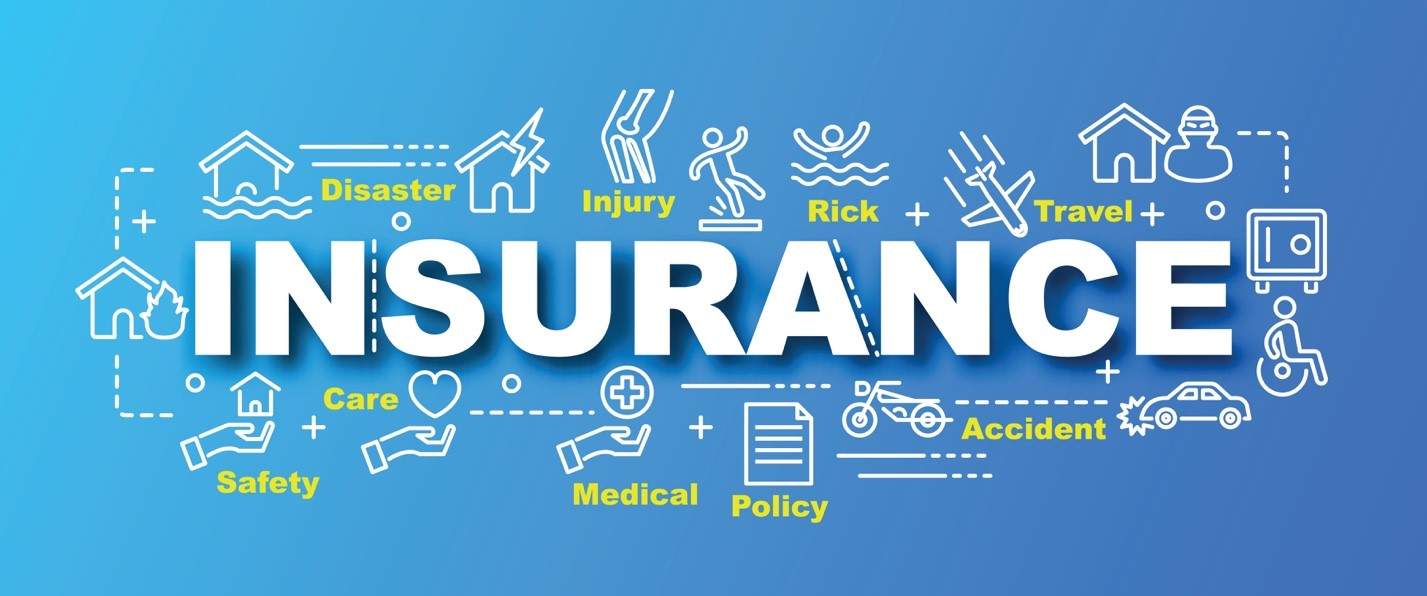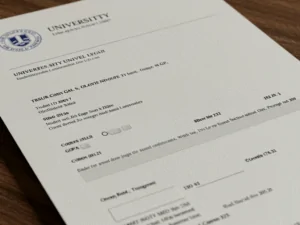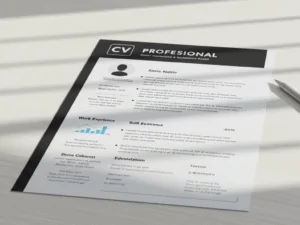Ever thought about how you’d protect your family, your health, or your car if life takes an unexpected turn? Life, health, and auto insurance are like a safety net, giving you peace of mind and financial security when things go wrong.
In 2025, with Nigeria’s rising costs, unpredictable health challenges, and busy roads, these insurance policies are more crucial than ever. This guide explains why you need these three types of insurance, how they work, their benefits, and tips for choosing the right plans, especially for Nigerians. Let’s dive into why these policies are your key to a secure future!
What Are Life, Health, and Auto Insurance?
Before we explore why you need them, let’s break down what these insurance policies are and how they protect you:
Life Insurance
A life insurance policy pays a sum of money (called a death benefit) to your loved ones if you pass away during the policy term. It’s a way to ensure your family’s financial stability, covering expenses like school fees, rent, or debts. In Nigeria, where many families rely on a single breadwinner, life insurance is a lifeline.
- Types: Term life (covers a set period, e.g., 10 years), whole life (covers your entire life), or endowment (combines savings with insurance).
- Example: A ₦10 million term life policy ensures your family gets ₦10 million if you die within 20 years.
Health Insurance
Health insurance covers medical expenses, from doctor visits to surgeries, so you don’t pay huge bills out of pocket. In Nigeria, where healthcare costs can hit ₦500,000 for major treatments, health insurance keeps you and your family healthy without breaking the bank.
- Types: Individual plans, family plans, or corporate plans (through employers).
- Example: A ₦50,000/year plan covers ₦1 million in hospital bills, including maternity care.
Auto Insurance
Auto insurance protects your car and others on the road, covering damages from accidents, theft, or natural disasters. In Nigeria’s busy cities like Lagos, where road accidents are common (over 5,000 crashes yearly, per FRSC), this policy saves you from costly repairs or legal issues.
- Types: Third-party (covers others’ damages), comprehensive (covers your car too), or third-party fire and theft.
- Example: A ₦100,000 comprehensive policy pays for ₦2 million in repairs after a collision.
Why You Need Life, Health, and Auto Insurance
These three policies cover different aspects of your life, working together to protect your finances, health, and assets. Here’s why they’re essential in 2025, especially for Nigerians:
1. Financial Security for Your Family (Life Insurance)
If you’re the main provider for your family, your income keeps things running—school fees, food, rent. But what happens if you’re no longer there? Life insurance ensures your loved ones aren’t left struggling.
- Pays Debts: Covers loans, mortgages, or credit card debts, so your family isn’t burdened.
- Replaces Income: Provides funds for daily expenses, like ₦5 million to cover five years of living costs.
- Funds Education: Ensures your kids stay in school, even private ones costing ₦1–5 million/year.
- Covers Funeral Costs: Funerals in Nigeria can cost ₦500,000–₦2 million; life insurance handles this.
Example: Chinedu, a 40-year-old father, buys a ₦20 million term life policy for ₦50,000/year. If he passes away, his wife and kids get ₦20 million to maintain their lifestyle and pay school fees.
Benefit: Gives your family a financial cushion, letting them grieve without money worries.
2. Protection Against Rising Healthcare Costs (Health Insurance)
Medical bills can wipe out your savings in a flash. A single hospital stay for surgery can cost ₦1–5 million in Nigeria, and with inflation at 32% in 2024 (per NBS), healthcare costs are climbing. Health insurance keeps these expenses manageable.
- Covers Emergencies: Pays for accidents, surgeries, or critical illnesses like cancer.
- Preventive Care: Includes check-ups, vaccinations, and screenings to catch issues early.
- Maternity Support: Covers prenatal care, delivery, and newborn care, vital for young families.
- Access to Quality Care: Use private hospitals with better facilities, avoiding long waits at public ones.
Example: Aisha’s ₦80,000/year family health plan covers ₦2 million for her son’s appendectomy, saving her from borrowing.
Benefit: Keeps you healthy and financially stable, even during medical crises.
3. Safeguards Your Car and Others (Auto Insurance)
Driving in Nigeria’s busy cities or unpredictable roads comes with risks—accidents, theft, or damage from floods. Auto insurance protects your car (a major asset) and covers damages you cause to others, avoiding legal or financial trouble.
- Repairs or Replaces Your Car: Comprehensive policies cover accidents, vandalism, or theft (cars worth ₦3–20 million).
- Covers Third-Party Costs: Pays for others’ repairs or medical bills if you’re at fault.
- Legal Protection: Handles claims or lawsuits after accidents, common in Nigeria.
- Peace of Mind: Drive confidently, knowing you’re covered for unexpected costs.
Example: Emeka’s ₦120,000 comprehensive policy pays ₦1.5 million to fix his SUV after a crash and ₦500,000 for the other driver’s repairs.
Benefit: Saves you from huge repair bills and legal hassles, keeping your car on the road.
4. Shields Against Nigeria’s Economic Challenges
Nigeria’s economy in 2025 is tough—high inflation, naira fluctuations, and job uncertainties make saving hard. Insurance policies act as a financial buffer:
- Life Insurance: Ensures your family’s future, even if your income stops.
- Health Insurance: Prevents medical bills from draining your savings.
- Auto Insurance: Protects your car, a key asset for work or business.
Example: A family with all three policies avoids financial ruin when the breadwinner loses their job, as health and auto claims are covered, and life insurance secures their future.
Benefit: Builds resilience against economic ups and downs.
5. Tax Benefits
In Nigeria, premiums for life and health insurance may qualify for tax deductions under the Personal Income Tax Act, reducing your taxable income. While auto insurance typically doesn’t offer tax relief, the savings from life and health plans add up.
Example: Paying ₦100,000/year for life insurance lowers your tax bill by ₦20,000, depending on your income bracket.
Benefit: Saves money while protecting your family and health.
6. Encourages Financial Discipline
Insurance policies require regular premiums, forcing you to budget and prioritize long-term security. Unlike savings accounts, it’s harder to withdraw funds for non-emergencies, ensuring the money serves its purpose.
Example: Monthly ₦10,000 health insurance payments keep you committed, unlike a savings account you might dip into for gadgets.
Benefit: Builds a habit of planning for your future.
7. Peace of Mind
Knowing you’re covered for life’s risks—death, illness, or car accidents—lets you focus on living. You can work, travel, and raise your family without constant worry about “what ifs.”
Example: Funmi, a single mother, sleeps better knowing her ₦15 million life policy, ₦1 million health plan, and auto insurance protect her daughter’s future and their car.
Benefit: Reduces stress, giving you confidence to pursue your goals.
How Life, Health, and Auto Insurance Work
Each policy has a unique process, but here’s a general overview:
Life Insurance
- Choose a Plan: Pick term, whole life, or endowment based on your goals (e.g., ₦10 million coverage for 20 years).
- Pay Premiums: Monthly, quarterly, or yearly (e.g., ₦30,000/year for ₦10 million term life).
- Nominate Beneficiaries: Name who gets the payout (e.g., spouse, kids).
- Claim Process: If you pass away, beneficiaries submit a death certificate and claim form; the insurer pays within weeks.
Health Insurance
- Select a Plan: Individual or family, with coverage limits (e.g., ₦1 million/year).
- Pay Premiums: Annual or monthly (e.g., ₦50,000/year for a family plan).
- Access Care: Visit network hospitals, show your ID card, and get treatment without upfront payment.
- Claim Process: Insurer settles bills directly with hospitals or reimburses you for out-of-pocket costs.
Auto Insurance
- Choose Coverage: Third-party (₦15,000–₦30,000/year) or comprehensive (₦50,000–₦200,000/year).
- Pay Premiums: Usually annually.
- Report Incidents: Notify the insurer after an accident or theft; provide photos, police reports, or repair estimates.
- Claim Process: Insurer assesses damage and pays for repairs or replacements.
Tip: Work with reputable insurers like Leadway Assurance, AIICO, or AXA Mansard in Nigeria for smooth claims.
Costs of Life, Health, and Auto Insurance
Costs depend on your age, health, car value, and coverage. Here’s a breakdown for Nigerians in 2025 (at ₦1,600/CAD):
Life Insurance
- Premiums: ₦20,000–₦200,000/year for ₦5–50 million coverage.
- Factors: Age (younger is cheaper), health (non-smokers pay less), and term (10 years vs. 20 years).
- Example: A 35-year-old pays ₦50,000/year for a ₦20 million 20-year term policy.
Health Insurance
- Premiums: ₦30,000–₦150,000/year for ₦500,000–₦5 million coverage.
- Factors: Individual vs. family plan, age, and add-ons (e.g., dental, maternity).
- Example: A family of four pays ₦80,000/year for ₦2 million coverage, including maternity.
Auto Insurance
- Premiums: ₦15,000–₦30,000 (third-party) or ₦50,000–₦200,000 (comprehensive) yearly.
- Factors: Car value, model, and location (Lagos is pricier due to traffic).
- Example: A ₦5 million SUV costs ₦100,000/year for comprehensive cover.
Total Sample Budget
- Profile: 40-year-old Nigerian, married, with two kids and a ₦6 million car.
- Life: ₦60,000/year (₦20 million term life).
- Health: ₦100,000/year (₦3 million family plan).
- Auto: ₦120,000/year (comprehensive).
- Total: ₦280,000/year (~₦23,000/month), less than 10% of a ₦300,000 monthly income.
Tip: Pay annually to save on fees, or choose lower coverage to fit your budget.
Benefits of Having All Three Insurance Policies
Combining life, health, and auto insurance creates a complete protection plan:
- Comprehensive Coverage: Protects your family (life), your health (health), and your assets (auto).
- Cost Savings: Some insurers offer discounts for bundling policies (e.g., 5–10% off).
- Simplified Management: Deal with one insurer for all claims, reducing paperwork.
- Financial Stability: Covers major risks, preserving your savings for goals like education or retirement.
- Enhanced Security: Drive, work, and live confidently, knowing you’re prepared for emergencies.
Example: A family with all three policies avoids financial ruin after a car accident (auto covers repairs), a hospital stay (health covers bills), and the breadwinner’s passing (life pays ₦15 million).
Who Needs Life, Health, and Auto Insurance?
These policies are for everyone, but especially:
- Breadwinners: Protect your family’s future if you’re the main income earner.
- Parents: Ensure your kids’ health and education are secure.
- Car Owners: Safeguard your vehicle and avoid legal issues.
- Young Professionals: Start early for lower premiums and long-term benefits.
- Middle-Aged Adults: Prepare for rising health risks and family responsibilities.
- Business Owners: Protect personal assets and employees’ health for business continuity.
Example: A 30-year-old teacher with a new car and baby needs all three to cover her family, health, and vehicle.
Types of Policies to Consider
Life Insurance
- Term Life: Affordable, covers 5–30 years (e.g., ₦30,000/year for ₦10 million).
- Whole Life: Lifelong coverage with savings (pricier, ₦100,000/year for ₦5 million).
- Endowment: Savings plus insurance, pays out at maturity (e.g., ₦15 million after 15 years).
Health Insurance
- Basic Plan: Covers hospitalization and surgeries (₦30,000/year).
- Comprehensive Plan: Adds outpatient care, maternity, and dental (₦80,000/year).
- HMO Plans: Use specific hospitals for lower costs but wider coverage.
Auto Insurance
- Third-Party: Covers others’ damages, mandatory in Nigeria (₦15,000/year).
- Comprehensive: Covers your car for accidents, theft, or floods (₦100,000/year).
- Fire and Theft: Middle ground, protects against specific risks (₦50,000/year).
Tip: Mix and match based on needs—e.g., term life, comprehensive health, and third-party auto for budget-conscious families.
How to Choose the Right Insurance Policies
With many options, picking the best policies takes care. Here’s how:
- Assess Your Needs:
- Life: How much do your family’s expenses, debts, and education cost?
- Health: Do you need maternity, chronic illness cover, or dental?
- Auto: Is your car new (needs comprehensive) or old (third-party enough)?
- Set a Budget:
- Allocate 5–15% of your income (e.g., ₦20,000–₦50,000/month for ₦300,000 income).
- Balance coverage with affordability.
- Compare Insurers:
- Check companies like Leadway, AIICO, or Custodian Life in Nigeria.
- Look for high claim settlement ratios (90%+) and good customer reviews.
- Understand Terms:
- Life: Check exclusions (e.g., suicide in first year).
- Health: Verify hospital networks and waiting periods (e.g., 9 months for maternity).
- Auto: Confirm coverage limits and no-claim bonuses.
- Add Riders:
- Life: Critical illness or disability cover.
- Health: Optical or mental health care.
- Auto: Roadside assistance or passenger liability.
- Consult an Agent:
- Meet a licensed advisor to explain plans and avoid high-pressure sales.
- Ask about claim processes and payout timelines.
- Review Regularly:
- Update policies as your needs change (e.g., new baby, car upgrade, or job change).
Tip: Request quotes from 2–3 insurers to compare premiums and benefits.
Common Misconceptions
- “Insurance Is Too Expensive”:
- Truth: Plans start at ₦15,000/year (third-party auto) or ₦30,000/year (health), cheaper than a ₦1 million hospital bill.
- “I’m Young and Healthy, I Don’t Need It”:
- Truth: Accidents and illnesses can strike anyone; young people get lower premiums.
- “Insurers Don’t Pay Claims”:
- Truth: Reputable firms settle valid claims promptly; check NAICOM-approved insurers.
- “I Can Save Instead”:
- Truth: Savings lack insurance protection and discipline; policies guarantee payouts.
- “Only Car Owners Need Auto Insurance”:
- Truth: Third-party cover is legally required for all drivers in Nigeria.
Challenges and Solutions
- High Premiums: Choose lower coverage or longer terms to reduce costs (e.g., ₦10,000/month for 20 years vs. ₦20,000 for 10 years).
- Claim Delays: Submit complete documents (e.g., police reports for auto) and follow up with insurers.
- Lack of Trust: Stick to NAICOM-regulated firms with strong reputations.
- Complex Terms: Ask agents to simplify policy details or read customer guides.
- Economic Strain: Prioritize health and auto for immediate risks, adding life as income grows.
Why 2025 Is the Time to Get Insured
- Rising Costs: Inflation (32% in 2024) pushes up medical and repair bills; insurance locks in protection now.
- Health Risks: Post-COVID, Nigeria sees more chronic illnesses; health insurance is vital.
- Road Safety Issues: Over 5,000 road crashes yearly (FRSC) make auto insurance a must.
- Digital Tools: Insurers offer apps and online quotes, making it easier to buy and manage policies.
- Tax Incentives: Nigeria’s 2025 budget may expand tax relief for insurance premiums.
Sample Insurance Plan for Nigerians
Scenario: Middle-Income Family
- Profile: 38-year-old couple, two kids (ages 5 and 8), ₦7 million car, ₦400,000/month income.
- Needs: ₦20 million life cover, ₦3 million health cover, comprehensive auto cover.
- Plan:
- Life: ₦20 million term life for 20 years, ₦60,000/year.
- Health: Family plan with maternity and dental, ₦120,000/year.
- Auto: Comprehensive for ₦7 million car, ₦150,000/year.
- Total Cost: ₦330,000/year (~₦27,500/month, 7% of income).
- Benefits: Covers school fees if parent dies, hospital bills for emergencies, and car repairs after accidents.
Steps
- Contact insurers for quotes.
- Provide ID, income proof, car documents, and medical history (if needed).
- Sign policies and set up auto-debit payments.
- Keep policy documents safe and review yearly.
Frequently Asked Questions
Why do I need all three insurances?
They cover different risks—life for your family, health for medical bills, and auto for your car—creating complete protection.
Can I afford insurance on a low income?
Yes, start with low-cost plans (e.g., ₦15,000/year third-party auto or ₦30,000/year health) and scale up later.
What if I miss premium payments?
Many policies offer a 30–60-day grace period or reinstatement options; check with your insurer.
Are claims easy to process?
With reputable insurers and complete documents, claims are settled within weeks.
Can I cover my whole family under one policy?
Health plans often cover families; life and auto need separate policies per person or car.
Final Thoughts
Life, health, and auto insurance are your shield against life’s uncertainties in 2025. From securing your family’s future to covering medical emergencies and car repairs, these policies offer financial stability and peace of mind in Nigeria’s challenging economy. Whether you’re a young driver in Lagos, a parent in Abuja, or a business owner in Port Harcourt, starting with affordable plans builds a strong foundation. Compare insurers, pick policies that fit your budget, and take the first step today. Your family, health, and car deserve protection—why wait to get insured?




